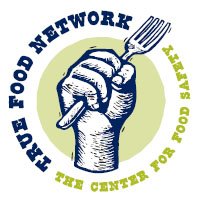 The Pennsylvania Department of Agriculture (PDA) has backed down from a controversial ban on the use of labels on milk products. The agency had issued new rules in October, set to go into effect February 1st that would have barred dairy companies or milk producers from labeling their products as from cows not treated with rBGH. PDA argued that a misleading impression might be conveyed by identifying milk as coming from cows not treated with synthetic hormones. Pennsylvania would have been the first state to implement such a labeling ban.
The Pennsylvania Department of Agriculture (PDA) has backed down from a controversial ban on the use of labels on milk products. The agency had issued new rules in October, set to go into effect February 1st that would have barred dairy companies or milk producers from labeling their products as from cows not treated with rBGH. PDA argued that a misleading impression might be conveyed by identifying milk as coming from cows not treated with synthetic hormones. Pennsylvania would have been the first state to implement such a labeling ban.The ban was rescinded yesterday after a review by Pennsylvania Governor Rendell due to consumer outcry.
Though labels are once again permitted to mention that hormones were not used, the standards require a disclaimer stating that the FDA has found no difference in milk from cows injected with the synthetic hormone and milk from cows that are not injected. Such disclaimers already are printed on many dairy products. The new regulations also require dairies to maintain procedures to verify any production methods claimed on their labels, including keeping a paper audit trail. (Read "State Revises Hormone Label for Milk", The New York Times for more information)
Pennsylvania was the first state to consider putting such a labeling ban in place, but other states including Washington, Missouri, and Ohio, seem to be following suit by considering regulations similar to those which Pennsylvania abandoned today. New Jersey had until recently taken the matter under consideration but has since determined not to take action.
While the U.S. Food and Drug Administration has ruled that rbGH use is safe, serious human and animal health questions remain, and it has been prohibited in Canada and the European Union. U.S. consumers have shown they prefer rBGH-free products, and that they want them labeled as such. In fact, an April 2007 Lake Research Partners national survey shows that eight in ten adults (80%) feel dairy products originating from cows that have not been treated with rBGH should be allowed to be labeled as such.
A broad coalition of groups including consumers, dairies, farming groups, and environmental organizations requested the changes announced today. (You can read the letter here)
Stay tuned for updates and actions on similar labeling bans in other states. If you have not already, please consider sending an email and making a call to Ohio Governor Strickland on this issue as well!


No comments:
Post a Comment